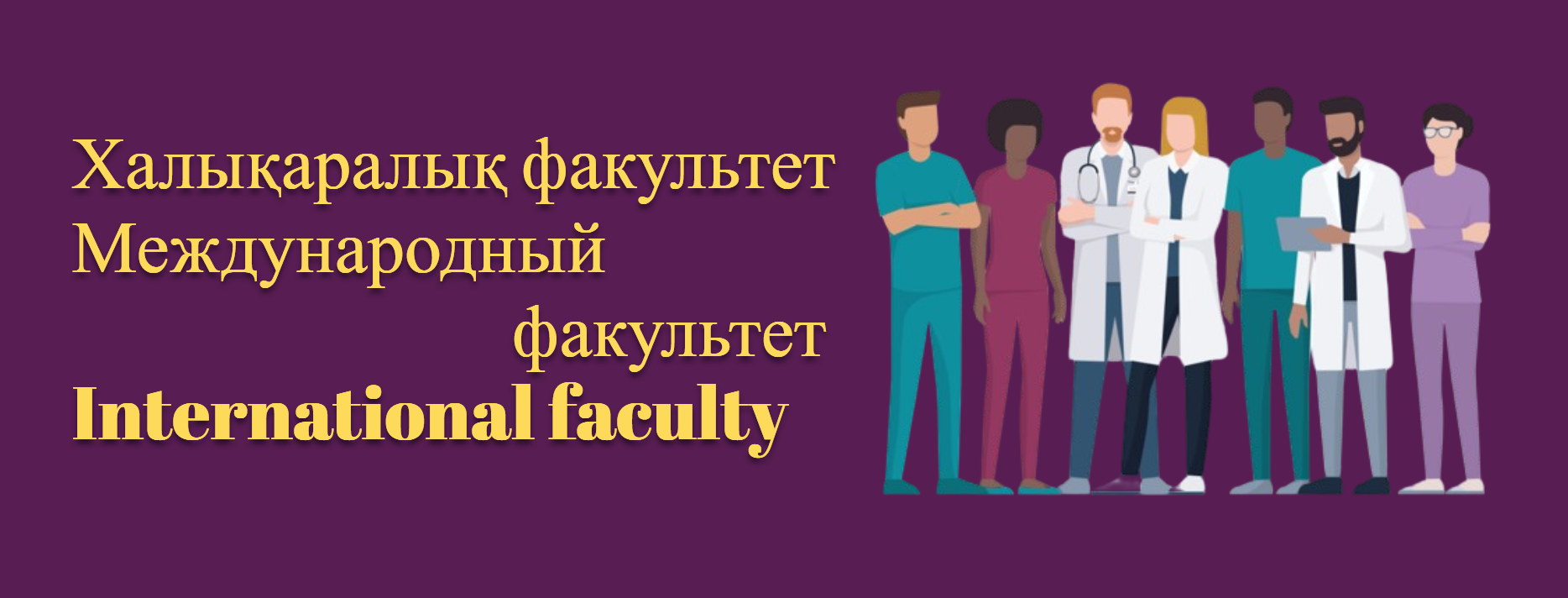Department of experimental hygiene (later general hygiene) – one of the oldest in KazNMU, was organized in February 1930.
The first head of the department was N. Popov – one of the first organizers of the sanitary service in Kazakhstan.
In the postwar years, scientific research at the department was conducted in the following areas: urban planning and improving, organizing of rural water supply, planning of new industrial centers, and hygiene of the village. Large-scale research has been carried out to study industrial wastewater of non-ferrous metallurgy enterprises in Kazakhstan. In this period (1948 – 1968) the department was headed by DMS, professor, honored worker of science I.S. Koryakin. In 1968, the head of the department became DMS, professor F.A. Daulbayev – one of the first graduate students of professor I.S.Koryakin. Under the guidance of F.A. Daulbayev developed approaches of improving water supply in the country, preventing gastrointestinal diseases, caries, fluorosis, especially among the rural population, assessing the effectiveness of the introduction of measures for the neutralization and use of sewage at non-ferrous metallurgy enterprises.
In 1980, with new head of the department, DMS, Professor Kazi Rakhimzhanovich Amrin, the department began to develop new research directions. They concerned issues of environmental protection, forecasting the quality of human habitat and diseases associated with environmental change, developing assessments of the human body response to the effects of harmful factors.
In 1994, the department was divided into 2 departments: “General Hygiene” and “Medical Ecology”, which were headed respectively by the DMS M.A. Shortanbayeva and DMS M.N. Omarova. In 1995, these departments were combined with the scientific and problem laboratory “Medical Ecology” in one scientific and educational association (SEA) “Hygiene”, headed by professor, corresponding member of the Academy of Medical Sciences of Kazakhstan Ussen Ismayilovich Kenessariyev. In 1999, the SEA “Hygiene” was renamed in the Department of General Hygiene and Ecology.Professor U.I. Kenessariyev has extensive experience in organizing the medical science of the RoK: from 1983 to 1989 he headed the science department and the scientific and technical department of the Ministry of Health of the Kazakh SSR, later he was deputy director for scientific work at the Scientific Research Institute of Hygiene and Occupational Diseases. In 1995, on the basis of CSRL ASMI, the problem laboratory “Medical Ecology” was organized by him. He was chairman of the cycle methodical commission of hygienic departments of KazNMU, and also was deputy chairman of the Dissertation Council on the protection of candidate and doctoral dissertations in the specialties “Hygiene” and “Biochemistry” and the chairman of the scientific and planning problem commission. In the framework of scientific programs at the department under the guidance of professor U.I. Kenessariyev completed 8 doctoral and 32 master’s theses.Scientific research, that conducted under the guidance of professor U.I. Kenessariyev, are devoted to the important ecological issues – increase of reliability and hygienic efficiency of measures for environmental protection, public health and disease prevention in ecologically unfavorable regions of the Republic of Kazakhstan. At the department 9 scientific research works (SRW) were carried out. That SRW were commissioned by the Ministry of Education and Science; Ministry of Environmental Protection; Ministry of Health; Ministry of Labor and Social Protection. A number of relevant international scientific projects and programs were implemented jointly with the UN office in the Republic of Kazakhstan, international oil and gas companies and other private and public enterprises.The staff of the department delivered scientific reports and internships in Switzerland, England, USA, Egypt, Israel, Italy, Spain and CIS countries. They regularly participated in conferences, symposia and seminars at all levels, as well as in the work (membership) of various standing committees, councils, associations, academies of international and republican levels. In March 2011, the department organized a specialized laboratory for assessing risks to human health, that was approved by the Scientific Council of KazNMU (Minutes No. 7 of 29.03. 2011).In October 2011, a research and innovation consortium was established (contract No. 33.10.11 dated October 25, 2011), which included Asfendiyarov KazNMU and LLP “Kenesary Company”.Scientific achievements of the department are successfully introduced into the educational process. So, for the first time in Kazakhstan in 2012, the textbooks “General Hygiene” in Russian and Kazakh languages under the editorship of Professor Kenessariyev U.I. approved by the Ministry of Education and Science of the Republic of Kazakhstan and recommended to the publication by the Republican Scientific and Practical Center “Textbook” of the Ministry of Education and Science of the Republic of Kazakhstan “as the main educational literature (Letter No. 01 / 01-488 of September 27, 2012) for university students. The textbooks outline the main issues solved by hygienic science and practice in the modern period to preserve and strengthen human health and prevent diseases. Leading teachers of the department were the developers of the State Educational Establishment, model curriculum in the disciplines “General Hygiene”, “Ecology and Sustainable Development” for all faculties, and “Radiation Hygiene” for the medical and preventive faculty of medical universities in Kazakhstan.The department organizes research work of students. Repeatedly the members of the scientific-student circle of the department passed to the third round of the scientific-student conference (Science Day) and were awarded with diplomas, certificates, valuable prizes (students: Saifulullina I., Shaimova S., Mamyrkulov M. and others). The teaching staff of the department is mentors of the students of the public health faculty and conducts with them a large educational work (visits to theaters and museums, thematic debates, talks, round tables, visits to the Children’s Home, labor veterans, celebration of international and national holidays, etc.).
